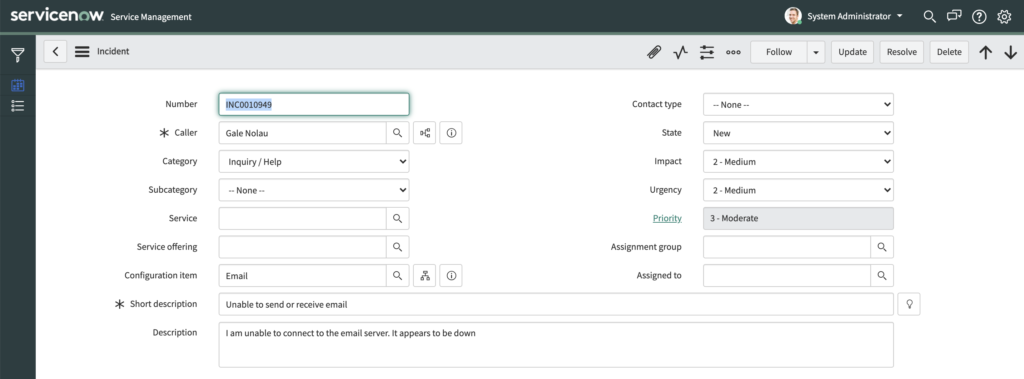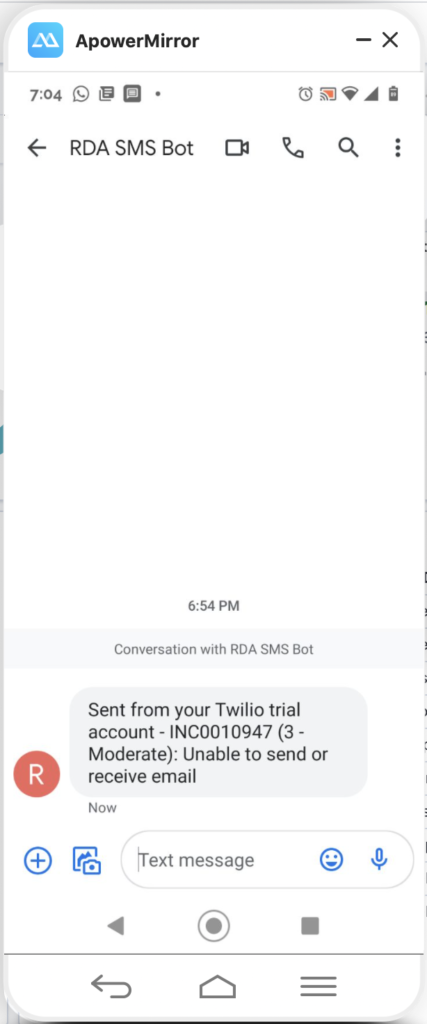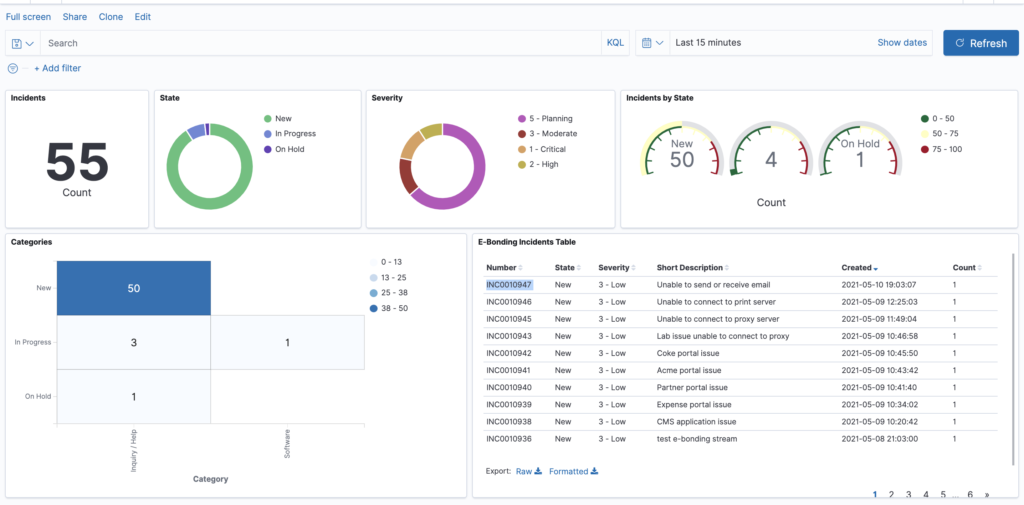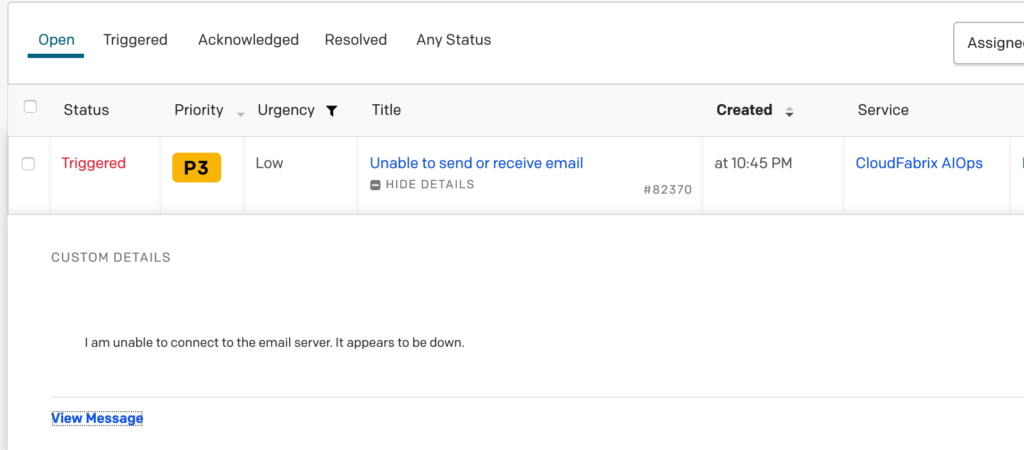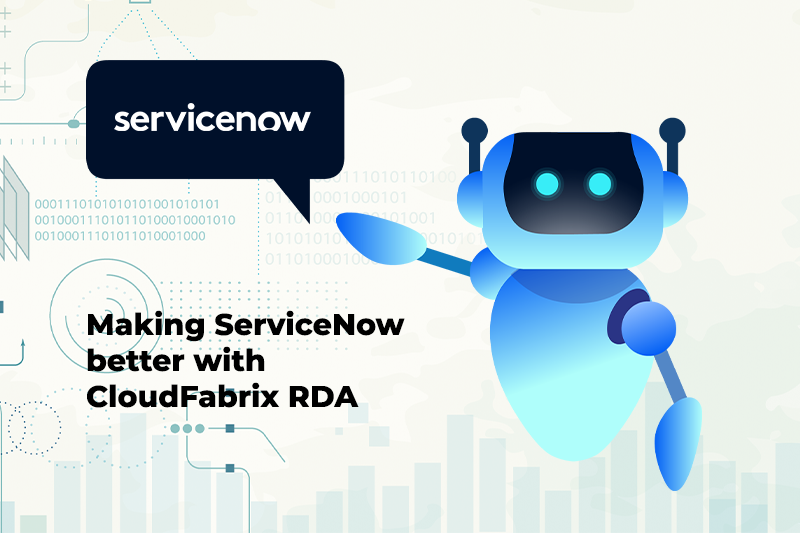In this blog, we will walk through the scenario of eBonding ServiceNow incidents to 5 destinations (PagerDuty, Twilio SMS, Slack, Elasticsearch, and Email (using SMTP) simultaneously, using Robotic Data Automation (RDA) and AIOps Studio.
What is eBonding
eBonding refers to a solution where data is delivered (one-way) or synchronized (two-way) among two or more different systems, which are typically under different administrative boundaries. eBonding term originally appeared in Service Provider and Telco space (see: ATT eBonding). ebonding has now expanded beyond Telco and is becoming a popular solution in MSP and Enterprise IT landscape.
For example, we were working with an MSP who provides remote managed services for their customers and one of their large enterprise customers had their own ticketing system, where customer’s call-in users’ complaints used to get recorded. However, the MSP has no visibility into these trouble tickets and wanted a way to have these tickets transmitted from the customer’s ticketing system to the MSP ticketing system so that the MSP operations team can work on it and resolve them within the SLA time period. This is a classic scenario of eBonding.
A variation of this is to build a bi-directional integration so that data is synchronized between the two systems. For example, once MSP resolves the ticket, it will get reflected back in the customer’s ticketing system.
Within the enterprise IT landscape we see even more expanded use cases of eBonding, where customers want to serve certain kinds of events (ex: incidents or change requests) to multiple stakeholders, who need to treat and process the same data differently.
For example, one team is responsible for reporting/auditing, whereas another team is responsible for taking action and yet another team is purely in the information loop (ex: managerial) – think RACI matrix.
Traditional Implementations
Traditionally eBonding implementations were all big projects, involving a couple of developers, a QA team, an architect, and a project manager, with a lot of custom code written in Java or other such languages. Performing changes also used to take time and had to go through a lot of development cycles. For example, when there are schema changes in the target system or when new attributes become available, developers had to enhance the core eBonding system.
eBonding ServiceNow Incidents
With RDA, implementing eBonding becomes very easy! You don’t have to be a developer to write RDA pipelines. I am not a developer myself, but I was able to come up with a set of quite elaborate and comprehensive RDA pipelines that will be eBond ServiceNow incidents to 5 different popular data destinations, who are all leaders in this space: PagerDuty, Twilio SMS, Slack, Elasticsearch, and Email (using SMTP).
In this eBonding scenario, we have a large enterprise IT, where multiple stakeholders need to treat and process IT incident data from ServiceNow. Once a new ServiceNow incident is created it is simultaneously sent to 5 different destinations
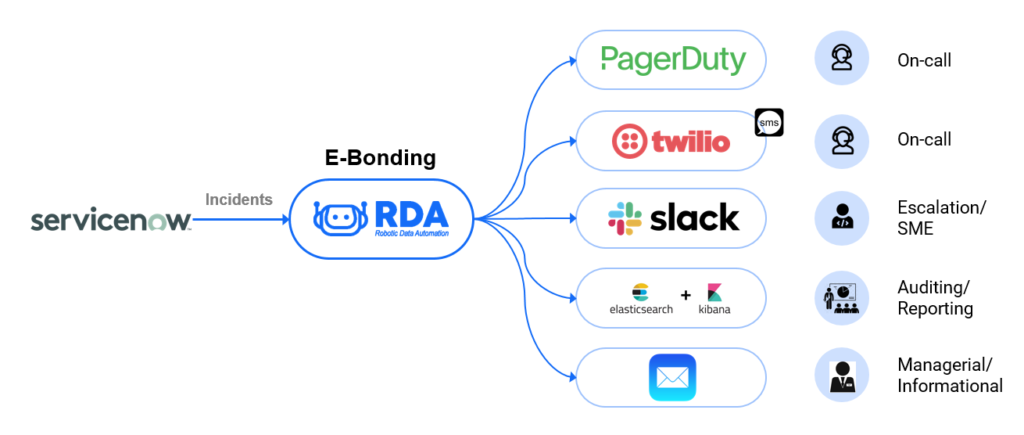
How it Works
- Bot Library – Integration Bots: Integration bots available in our bot library connect to listed sources (ServiceNow, Slack, Elasticsearch, Email, PagerDuty)
- Bot Library – Generic/REST API Bot: Using the REST API bot we were able to send SMS using the Twilio service. This REST API bot will be especially useful when you don’t have a named integration bot for a certain source or destination.
- Data Streams – Use data streams to implement streaming data (internally uses Kafka)
- Pipelines – 5 pipelines for 5 destinations, giving modularity and ease of use. Each pipeline is few lines of abstract RDA syntax (no code)
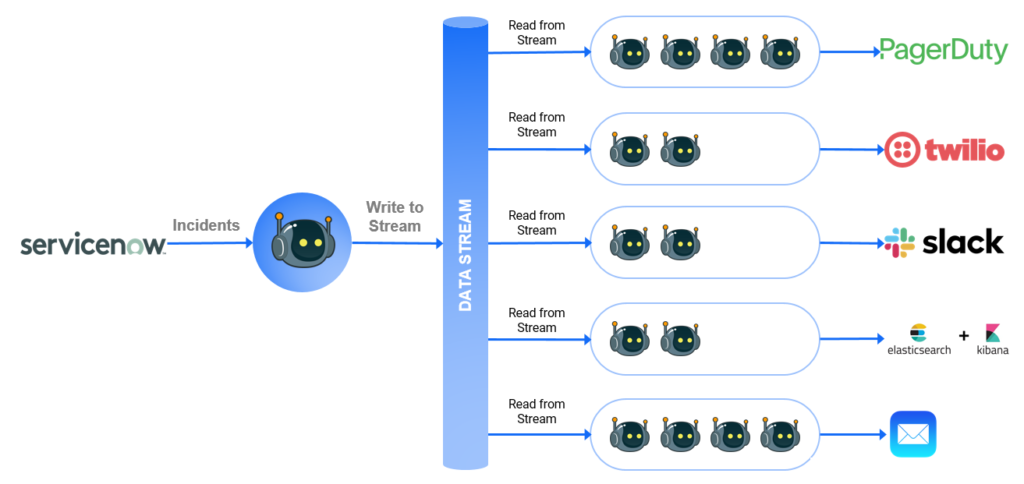

eBonding Use Case Variations
With RDA pipelines, performing changes and customizations are easy. You can update pipelines, perform data transformations, enrich data with an additional context or add conditional data delivery schemes. Few variations include:
- Send only P1 incidents on certain application to the on-call team
- Route to different recipients or channels based on data (ex: app incidents to application team, network/storage incidents to infra team)
- Enrich the quality of an incident before sending it out (ex: DNS lookup, environment prod/non-prod, datacenter, region)
- Add NLP insights for unstructured text
- More
Benefits of eBonding with RDA
- Faster Time to value
- Lower cost (time and man-hrs) to implement eBonding
- No programming skills or specialized domain skills required
- Out of box integration bots and extensive bot library
- Easy to implement customizations and changes
Learn More or Try RDA for Free
If I can implement eBonding, you can do it too! You can use our hosted AIOps Studio to implement RDA. Visit https://roboticdata.ai to learn more or signup at https://roboticdata.ai/signup/. Let us know if you have any questions or feedback, or if you have any specific use case or scenario that you want to implement in RDA and we will be happy to work with you info@roboticdata.ai
